The post “I don’t like the orphanage. Please let me come home” – Sunil’s journey back to family appeared first on Hope and Homes for Children.
]]>These are the words of Sunil*, a young boy from Nepal who was sent to an orphanage. For two long years, Sunil was homesick, lonely and afraid – until we supported his parents to bring him back where he belongs. Back to Family.
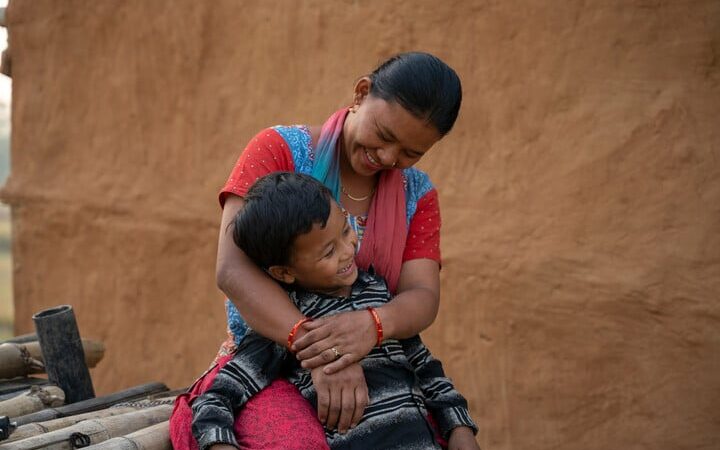
Lata never wanted to say goodbye to Sunil. All she wanted was to get her only son an education. But when she sought help, she was persuaded to place him in an orphanage. Sunil was only four.
“My heart ached thinking about him, what he was eating, or whether he was eating at all,” Lata told me. “I’d tell myself that he’s still very young, that keeping him in the orphanage was for the best.”
But what Lata didn’t know is that orphanages don’t help children, they harm them. As the one thing children need most is what no orphanage provides. A loving family. Sunil spent the next two years desperately missing his mum, dad and little sister, Shika*.
Will you help get millions of separated children like Sunil #BackToFamily? Donate today.
The truth about orphanages in Nepal
As a Reintegration Officer for Hope and Homes for Children’s local partners in Nepal, it’s my job to reunite children like Sunil with their families.
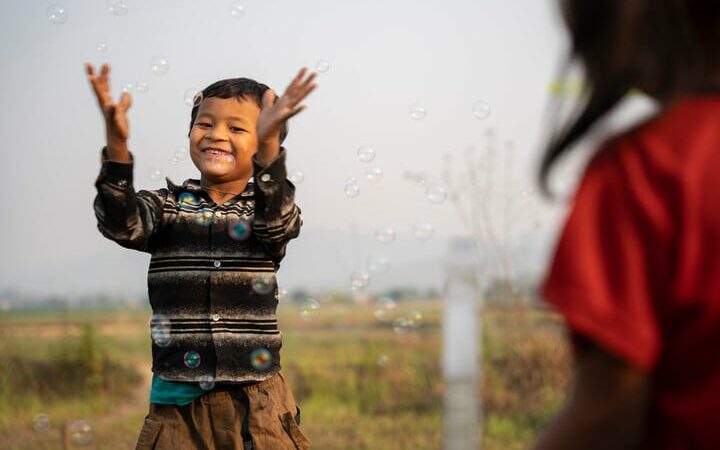
Right now, there are over 10,000 children living in 400 orphanages across the country. The sad truth is that 85% of them have families that could take care of them. But instead of receiving support, parents like Lata feel pressured to send their children away. And children like Sunil suffer.
Why Sunil was sent to an orphanage
Sunil’s family is part of the indigenous Chepang community – one of the most marginalised groups in Nepal. Before being pressured to come out of the jungle, the Chepang were self-sufficient, hunting and foraging to survive. Now, with limited income and opportunities, 90% of Chepang families live below the poverty line – earning on average just £39 per person, per year.
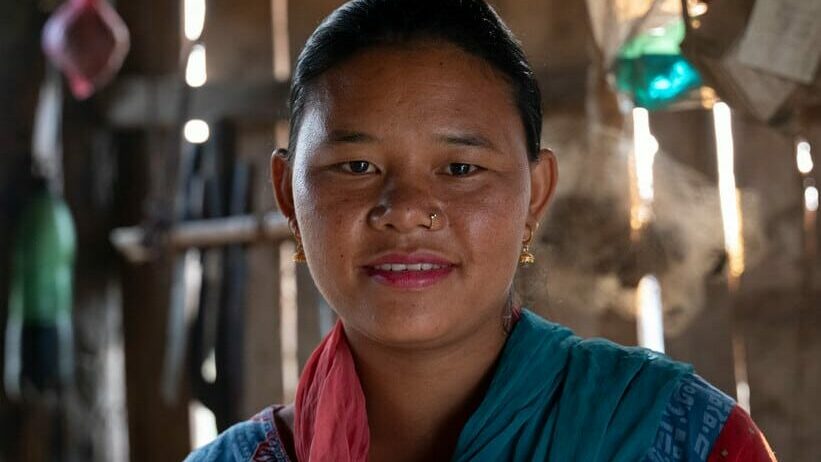
Struggling to pay for basics like food and school fees, many Chepang parents worry about how they’ll raise their children. As a result, they buckle under pressure from orphanages to send their children away. Just like Lata did.
“Whenever I’d see him, Sunil used to beg me to take him home,” Lata told me. “He’d cry whenever I’d visit. I felt like crying too.”
Many Chepang children like Sunil are sent to orphanages under the guise of getting an education. But instead, they’re trafficked into orphanages tourist districts – often to help elicit donations from well-meaning, but sadly mistaken tourists.
What Sunil needed more than anything was to go back to family. And that’s exactly what my team set out to find him.
Bringing Sunil back to family
In partnership with the local government, my team started to work on bringing the children in Sunil’s orphanage back to family.

After we traced Lata and Hari, Sunil’s dad, I worked with them to find out what they needed to bring Sunil home. Education was their top priority, so we ensured they could afford school supplies for Sunil, including uniform, books and stationery and a daily lunch box for school.
Soon, Lata reclaimed her confidence. “My child needs to know who I am,” she told me. “I need to feel his love, and he needs to feel mine.”
At last, after two long years, they felt ready to bring Sunil back to family.
Home at last
The day Sunil returned was an unforgettable day for the whole family. At last, they were reunited.
“We celebrated by playing music and dancing to my favourite song,” Sunil remembers. “The thing I love most about my mum is when she sings. And I love when my dad plays with me.”

“Things used to be difficult,” Lata told me. “But it’s been easier with all the help we’ve received. I’m very happy. I want to thank the ones who’ve supported us. May they be blessed for looking after the little ones.”
“I’m just so happy that my son has come home,” said Hari. “Today, we play together, eat together and have our ‘us’ time. Thank you so much for making this happen.”
When I see Sunil with his family smiling and being happy, I always imagine this scene of a little baby sparrow who has finally found his way home back to his nest with his mother. It makes me so emotional to imagine this baby sparrow returning back home.

Will you help millions of children like Sunil get #BackToFamily? Donate today.
Written by Rohan Bagale, Reintegration Officer with THIS
All Hope and Homes for Children’s work in Nepal is done through supporting two local partners – The Himalayan Innovative Society (THIS) and Forget Me Not (FMN). The National Child Rights Council has acknowledged our collective expertise and efforts and now sees FMN and THIS as leading organisations on childcare reform.
*Names changed to protect identity. | All photos by Kishor Sharma / Hope and Homes for Children
The post “I don’t like the orphanage. Please let me come home” – Sunil’s journey back to family appeared first on Hope and Homes for Children.
]]>The post Donate to our Christmas Appeal to keep children #SafeFromHarm appeared first on Hope and Homes for Children.
]]>Even worse, 85% of these children aren’t actually orphans. Instead of growing up at home, safe and loved, children are trapped inside orphanages – homesick, lonely and afraid.
This Christmas, we urgently need your support to help reunite children in orphanages with their families. Watch our video and read on below to find out how you can help keep children safe from harm.
How many children are in orphanages in Nepal?
Right now, over 10,000 children are shut away in 400 orphanages across Nepal. Cut off from their family, community, and culture. Most of these children have at least one living parent who they could – and should – be growing up with. But poverty, limited access to education and widespread misconceptions about orphanages cause families to be torn apart.
What happens to children in orphanages?
Tragically, many children in Nepal’s orphanages often experience hunger and beatings, as you’ll hear from Tabita* and Moti* in the film. Many live in constant fear of being scolded and punished. And often they don’t even know that they have living parents.
When Moti shared his story with me earlier this year, it broke my heart. “I was only four when they took me away,” he explained. “I stayed there for 12 years. I didn’t even know I had parents. We got beaten a lot – with pipes, sticks, bamboo strips. In my heart, all I felt was fear.”
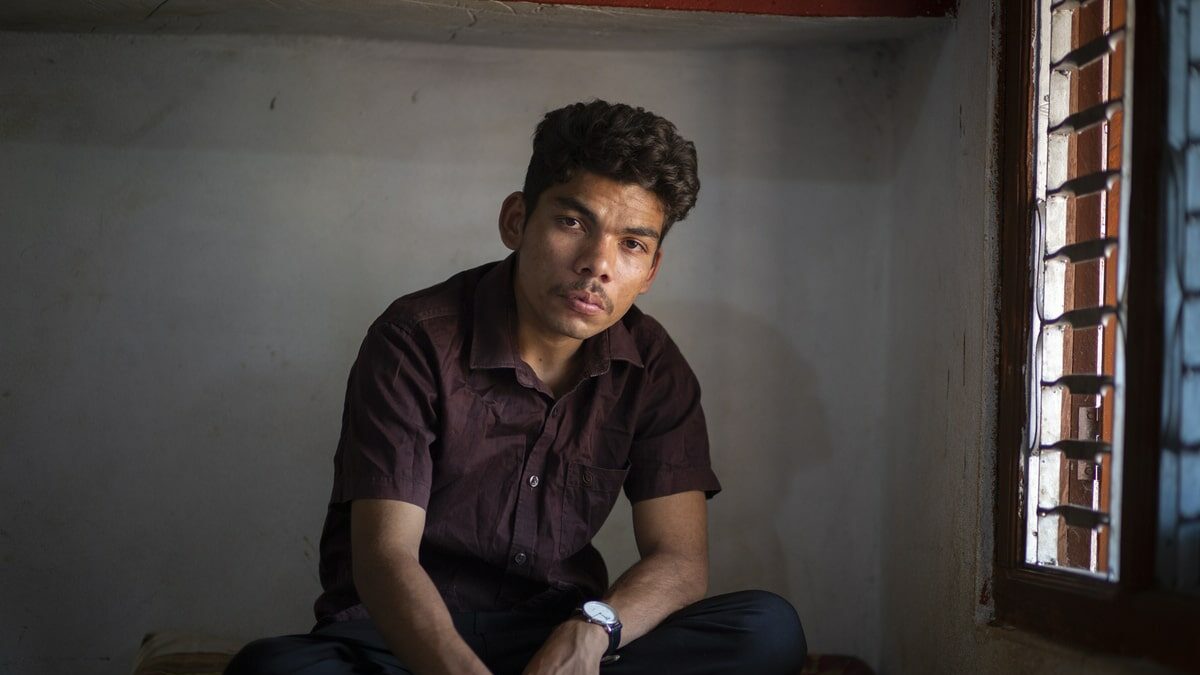
Unaware of these children’s heartbreaking experiences, 70% of people in the UK think orphanages are a good thing. But sadly, they’re mistaken. Even the most well-run orphanages don’t help children; they harm them by denying them their fundamental human right to love, family and belonging.
So why are children left in orphanages?
There are many reasons why children end up in orphanages but three main reasons in Nepal are:
- Poverty. Global inequality exacerbated by skyrocketing global prices means many parents can’t afford basics like food and school supplies. This makes them vulnerable to widespread misconceptions that orphanages can offer their child a better future, by guaranteeing food, shelter and education.
- Lack of access to education. Many parents want to send their children to school to give them the best chance in life. But in poor remote areas where the closest school is still a long walk away and parents can’t afford school fees and books, sending children to orphanages is seen as a good alternative.
- Trafficking. Many orphanages in Nepal operate as businesses with the purpose of making money. Children are often trafficked from poor remote areas into these orphanages – or so-called ‘child care homes’ – to elicit donations from well-meaning but misinformed tourists or donors.
Dambari Maya, below, is one of thousands of parents who’ve been persuaded to give up their precious children.
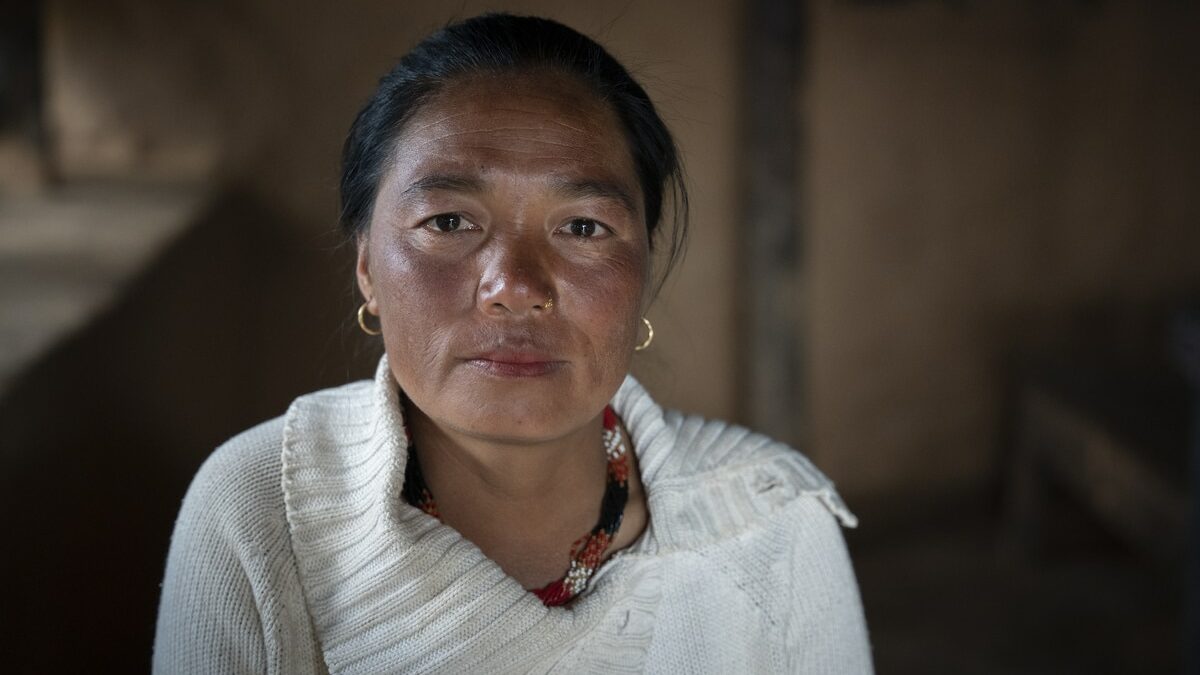
“We didn’t have enough to eat,” she explained to me. “The men who took my children told me they’d educate them and feed them well. I trusted them. But I suffered, and my children suffered too. I didn’t understand then. But now I do. And things have to change.”
With your support, we can make that change happen and reunite children with their families. Children like Sunil.
How we reunited Sunil with his family
Sunil, six, is from the Chepang community – one of the most marginalised indigenous groups in Nepal. Determined to get Sunil the education she never had, his mum, Lata* was persuaded to send him to an orphanage.
“I didn’t want to send him,” Lata said, keen to explain the terrible decision she felt compelled to make. “My heart ached thinking about him. But I would tell myself that taking him back would ruin his future.” Sadly, Sunil suffered for two long years, desperately missing his mother.
When Lata visited him, Sunil would say: “Mummy, I don’t want to go back to the orphanage. I don’t like that place. There are older children there that beat me. Please let me come home.”
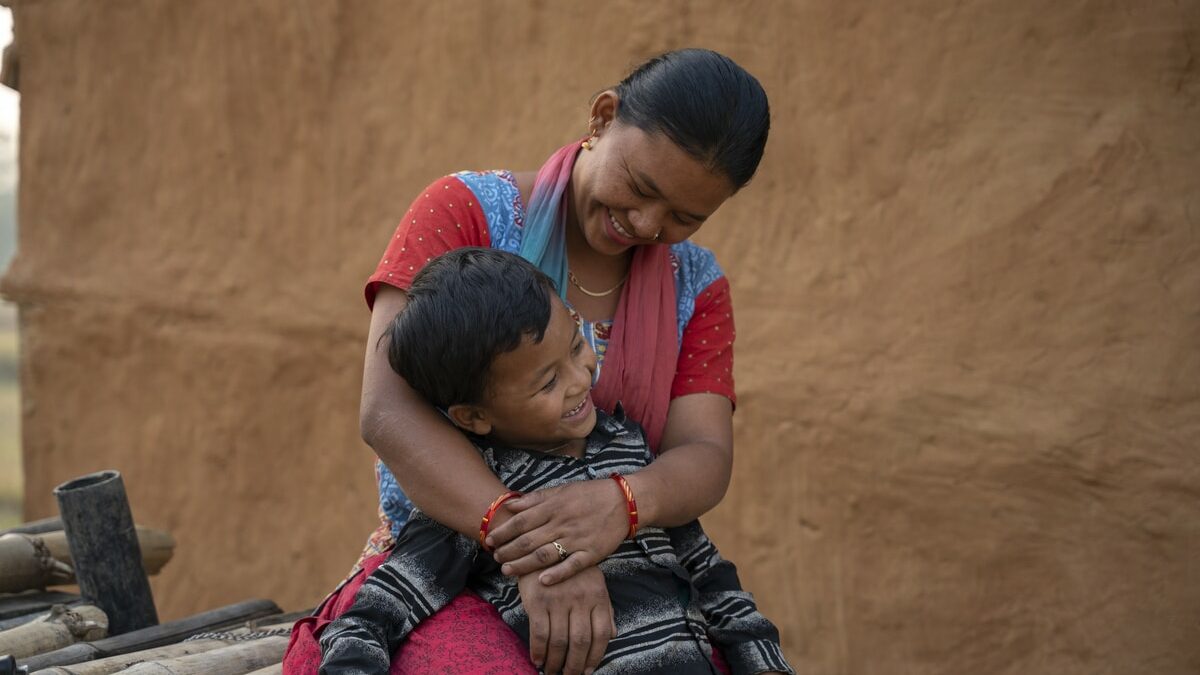
Last year, my colleague Rohan traced Sunil’s parents, counselled them and offered the financial support they needed to bring him back. “Things used to be hard,” Lata told me, “but thanks to the support we’ve received, life is much easier. I am so happy. Now Sunil can sit in my lap and be loved.”
How can I help children in orphanages this Christmas?
Sunil’s just one of 26 Chepang children we’ve reunited with their families from two orphanages in Chitwan District. But there are still 37 children left living there. This Christmas, you can help us keep them safe from harm.
We’ve already traced their parents. But just like Sunil’s parents, with limited opportunities to earn an income, Chepang families need support to put food on the table and afford education.
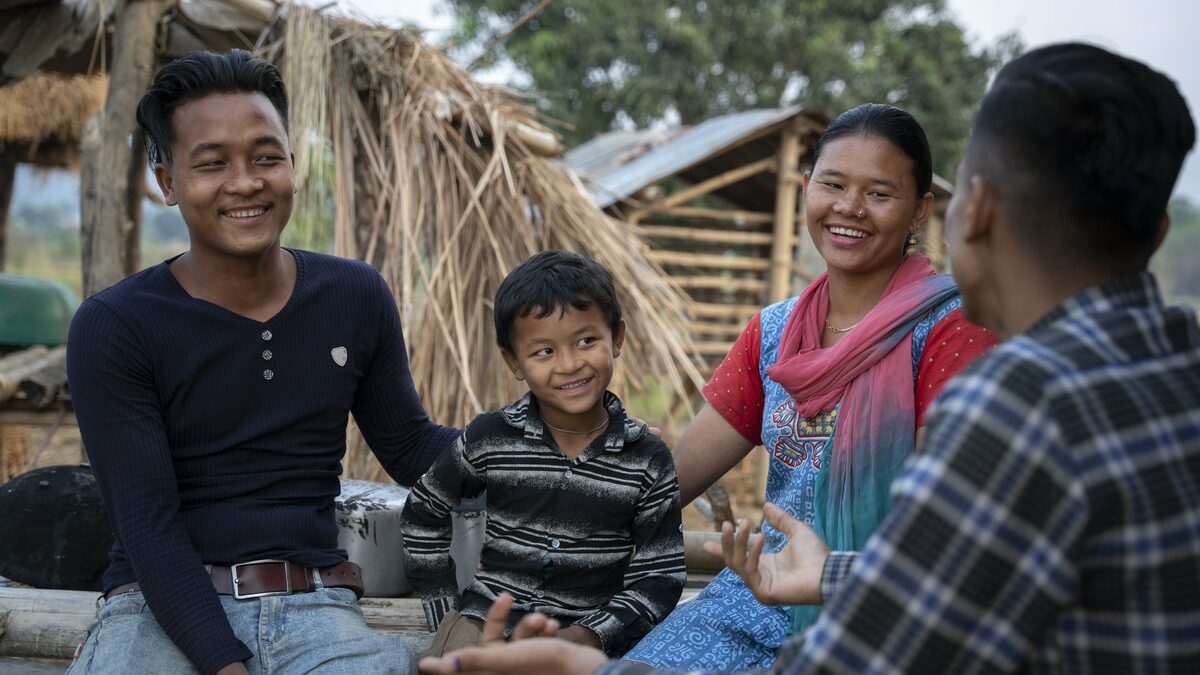
How will my donation help children in orphanages?
Your donation could help parents cover education costs, from books and uniform to school fees and a bike to get to class. For parents like Lata, these basic items could be what enables them to bring their families back together.
Your donation could also help my team prevent more children being sent away, by telling more parents the truth about orphanages, and lobbying for better schools in remote areas so children can study near home.
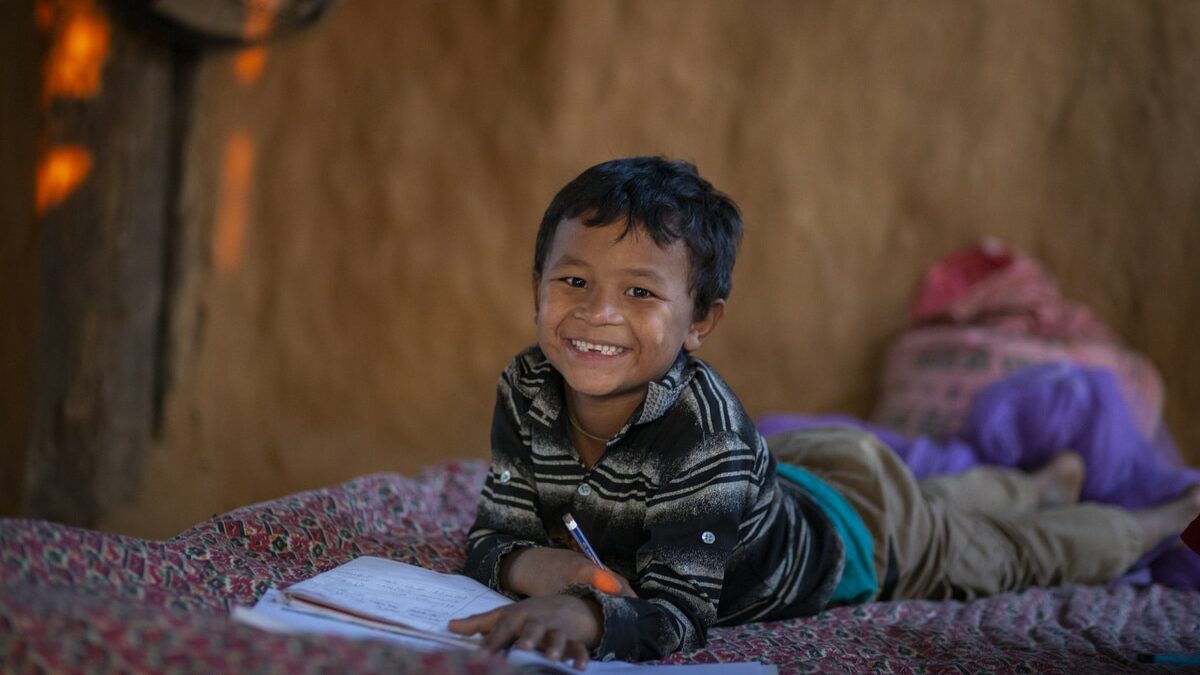
Every day a child is in an orphanage could be another day of hunger, of beatings, of longing for someone to love them.
Please donate to our Christmas appeal to help reunite children with their families and keep them safe from harm, and free from fear.
All Hope and Homes for Children’s work in Nepal is done through supporting our two local partners – The Himalayan Innovative Society (THIS) and Forget Me Not (FMN). The National Child Rights Council has acknowledged our collective expertise and efforts and now sees FMN and THIS as leading organisations on childcare reform in Nepal.
*Names changed to protect identity. | All photos by Kishor Sharma / Hope and Homes for Children
The post Donate to our Christmas Appeal to keep children #SafeFromHarm appeared first on Hope and Homes for Children.
]]>